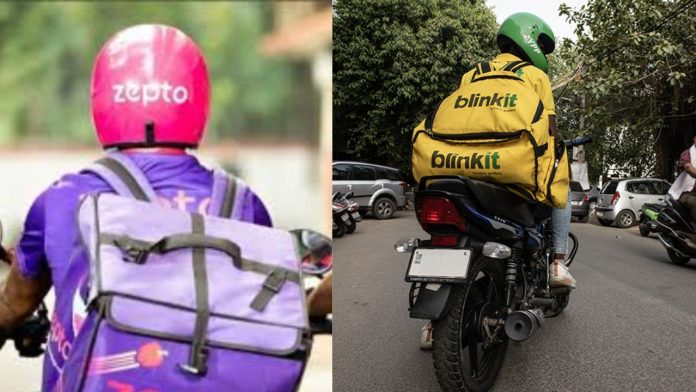Delivery executives working for quick-commerce platforms earn more than those delivering food, revealed a recent report .
Morgan Stanley states Q-comm delivery man earn INR 21,402
This reflects the rapid growth of quick commerce, which is transforming consumer buying behavior and benefiting gig workers. According to a report by Morgan Stanley, delivery partners in quick commerce earn a net income of INR 21,402 a month, compared to INR 18,595 for their food-delivery counterparts.
Continue Exploring: PhonePe’s Pincode pilots 20-minute quick delivery service, challenges Zepto, Blinkit
The report also states that a quick-commerce delivery partner completes 533 orders per month, nearly 30% more than the 411 orders for food delivery. “In terms of cost structure, quick commerce’s costs are better than food delivery due to its lower last-mile cost. This is partially offset by other costs pertaining to mid-mile, partner commission for running franchisee stores and lease costs for renting out warehouses and dark stores,” the report published on November 13 said.
Faster turnaround helps Q-comm delivery man
According to Zomato‘s latest shareholder letter, its quick commerce arm Blinkit had 127,000 monthly active delivery partners on average in the quarter ended September 30. The average delivery time for a quick commerce order is 10-15 minutes, compared to 30-40 minutes for food delivery.
Continue Exploring: CCI approves Google’s Alphabet acquiring stake in Flipkart
This faster turnaround helps quick commerce delivery partners to do more deliveries per hour. In quick commerce, the delivery distance per order ranges from 2 km to 3 km, compared with 5-7 km for food delivery.
“The last mile delivery architecture is simpler for quick commerce (one to many) than for food delivery (many to many), which makes it possible for a higher number of deliveries per hour for quick commerce,” the report said.
Meanwhile, the quick commerce market in India is expected to be worth $42-55 billion by 2030, as per the report. The sector is seeing increased competition, with players like Blinkit, Swiggy Instamart, and Zepto facing new entrants such as Flipkart, Tata Group, and Amazon.
Rivalry among the top three has escalated as they aggressively expand their dark store networks. Blinkit opened 152 new dark stores in the second quarter, bringing its total to 791 as of September 30. According to ET, more than 1 billion of kirana sales are expected to move to quick commerce in 2024, as per e-commerce consultancy Datum Intelligence.





